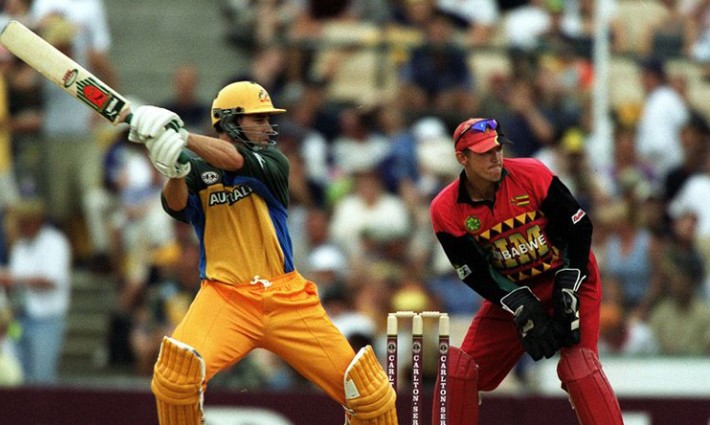Michael Bevan: In the world of cricket, players are often compared based on a number of statistics such as batting averages, centuries, and match-winning contributions. Among these statistics, the batting average is one of the most significant indicators of a batsman’s consistency and ability to perform at the highest level.
A player with a very good batting average can be seen as someone who consistently scores runs, but this doesn’t necessarily mean they have a high number of centuries to their name. One such player is Michael Bevan, the former Australian cricketer who is widely regarded as one of the finest finishers in One-Day International (ODI) cricket. Bevan’s ability to score runs consistently, despite not having a huge number of centuries, makes him a fascinating case study in the history of cricket.
Michael Bevan: Consistency Over Centuries
Michael Bevan: Michael Bevan, who played for Australia between 1994 and 2004, is best known for his role as a middle-order batsman and his remarkable ability to finish matches, particularly in ODIs. While his career didn’t see him amass a large number of centuries, his batting average is one of the best in ODI history, a testament to his ability to churn out runs consistently over his career.
Career Overview:
- ODI Matches Played: 232
- Total Runs: 6,912
- Batting Average: 53.58
- Centuries: 6
- Half-Centuries: 43
Bevan’s career batting average of 53.58 in ODIs is one of the best among cricketers with significant career runs. However, what stands out about Bevan’s career is the contrast between his excellent batting average and his relatively low number of centuries. He scored just six centuries in 232 matches, which is notably fewer than other players with similar averages.
Why Bevan Had Fewer Centuries

- Role as a Finisher: Bevan often played the role of a finisher, coming in during the latter stages of the innings when the team was in a position to either consolidate or finish off the chase. This role often involves playing smaller, but crucial innings to guide the team to victory rather than building long innings for centuries.
- Lower Strike Rate in Long Innings: Bevan’s style of batting was to take his time and construct innings slowly, especially in situations requiring stability. This sometimes meant that he would not accelerate quickly enough to reach a century but was still able to score at a steady pace, thus maintaining a high batting average.
- Team Dynamics: Australia, during Bevan’s era, had several explosive top-order batsmen who would score the bulk of the runs, allowing Bevan to concentrate on playing the anchor role in chasing down totals.
Bevan’s Key ODI Contributions
Michael Bevan: Even though Bevan’s centuries were few, his consistency and ability to handle pressure in the middle overs helped Australia to win numerous matches. He was particularly noted for his calmness in chasing difficult targets, and his partnerships with other lower-order batsmen often saw Australia through in tight situations.
| Year | Opponent | Runs Scored | Match Result | Details |
|---|---|---|---|---|
| 1997 | New Zealand | 105* | Australia won | Bevan’s century guided Australia in a successful chase |
| 2000 | South Africa | 50* | Australia won | A vital match-winning performance at number 6 |
| 2003 | India | 85* | Australia won | A match-winning knock in a high-pressure chase |
| 2002 | England | 92 | Australia won | Bevan’s 92 helped Australia reach a challenging target |
| 1999 | Pakistan | 56* | Australia won | Anchored the chase with an unbeaten knock |
| 2001 | Sri Lanka | 57* | Australia won | Played an important knock in a tight chase |
Comparing Bevan’s Batting Average with Centuries
Michael Bevan: To better understand the contrast between Bevan’s batting average and his lack of centuries, we can compare his numbers with other prominent cricketers who have similar career averages but significantly more centuries. For example, players like Shane Watson and Younis Khan both had batting averages in the 40s but scored far more centuries than Bevan.
| Player | Matches Played | Runs Scored | Batting Average | Centuries | Half-Centuries |
|---|---|---|---|---|---|
| Michael Bevan | 232 | 6,912 | 53.58 | 6 | 43 |
| Shane Watson | 190 | 5,759 | 40.54 | 9 | 40 |
| Younis Khan | 265 | 10,099 | 52.05 | 34 | 33 |
| Darren Bravo | 40 | 2,581 | 47.75 | 3 | 19 |
| Ian Bell | 161 | 5,416 | 42.69 | 7 | 30 |
As shown in the table, Michael Bevan’s batting average of 53.58 is exceptional, but his six centuries are relatively low when compared to cricketers who have averages in the 40s but have scored a significantly higher number of centuries. Despite not having many centuries, Bevan’s ability to perform under pressure and his remarkable consistency in scoring runs make him one of the finest middle-order batsmen in ODI cricket history.
The Importance of Bevan’s Contribution
Michael Bevan’s contributions to Australian cricket cannot be understated. He was often the calm in the storm, especially when chasing big totals or when wickets fell at regular intervals. His cool-headedness and ability to build partnerships in tight situations were vital for Australia’s success during the late 1990s and early 2000s. His batting style might not have led to a large number of centuries, but he was the backbone of Australia’s middle order, providing stability and composure when it was needed the most.
A Legacy of Stability:
Bevan’s legacy lies in his consistency rather than his big scores. In many ways, he demonstrated the value of being a dependable player who can contribute to match-winning partnerships and ensure the team stays afloat during difficult times. As a middle-order batsman, his primary role was often to anchor the innings, which naturally resulted in fewer centuries, but many vital, match-winning contributions.
Conclusion
While cricketers with higher centuries might often grab the headlines, players like Michael Bevan serve as a reminder that consistency is equally, if not more, important in a cricketer’s career. Bevan’s impressive batting average of 53.58, coupled with his relatively low number of centuries, highlights his exceptional ability to score runs regularly without necessarily going for big hundreds. His role as a finisher and the calm presence he brought to Australia’s middle order was crucial in many of their victories. Therefore, Bevan’s story is a perfect example of a cricketer who contributed immensely to his team’s success, despite not having the centuries tally typically associated with greats of the game.

